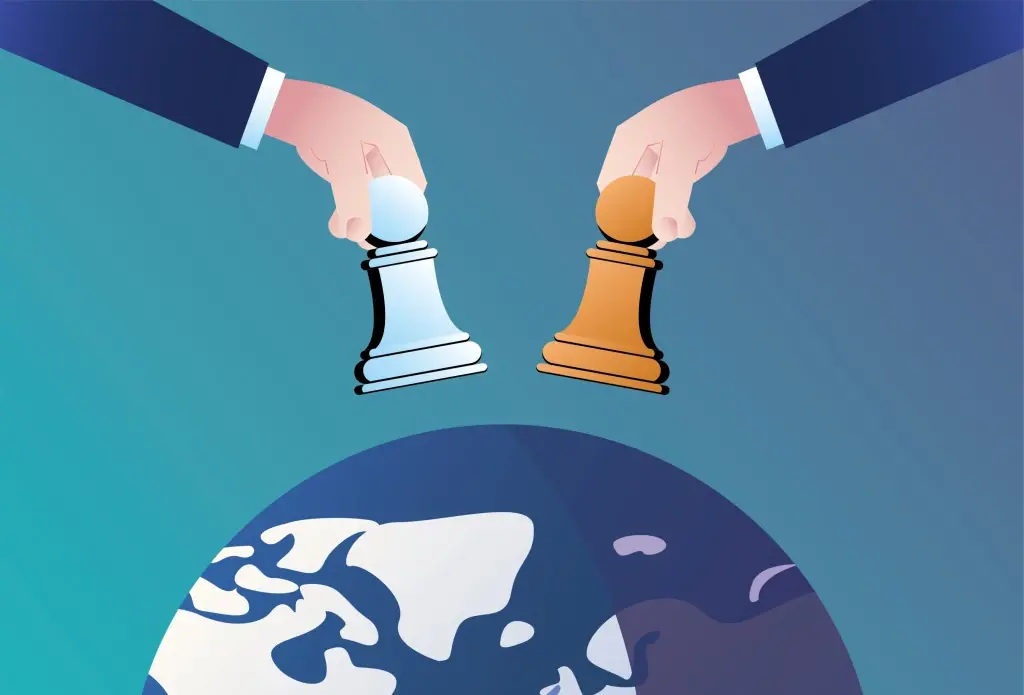Introduction
The global political landscape in 2025 is marked by rapid change, technological disruption, and shifting alliances. The traditional centers of power—the United States, Europe, and China—are still influential, but emerging nations, regional blocs, and even non-state actors are reshaping how global governance works. Diplomacy is no longer confined to formal summits and backroom negotiations; it now plays out on social media, in cyberspace, and in economic markets.
This article explores the state of politics in 2025, examining the challenges facing global leaders, the rise of new alliances, the role of technology in governance, and the impact of crises such as climate change and conflicts on international cooperation.
The Shifting Balance of Power
For much of the 20th century, world politics was defined by superpower rivalry—the Cold War between the U.S. and the Soviet Union. In the early 21st century, it evolved into a multipolar world, with the U.S., China, Russia, and the EU competing for influence.
By 2025, that multipolarity has deepened. India, Brazil, Turkey, and African nations are asserting greater authority on the global stage. Regional powers are shaping global policies through trade deals, defense agreements, and digital alliances.
The rise of the Global South is perhaps the most important trend. Developing nations are no longer content with being policy takers; they are demanding more seats at the table in organizations like the UN, WTO, and IMF.
Technology as a Political Tool
Technology is transforming politics in 2025. Cybersecurity, artificial intelligence, digital surveillance, and social media propaganda are tools of both statecraft and conflict. Elections are influenced not just by campaign rallies but by algorithms and data-driven strategies.
Artificial intelligence is used to predict voting behavior, manage public policy, and even draft legislation. While this brings efficiency, it also raises concerns about manipulation and transparency. Cyberattacks remain a major threat, with state-sponsored hackers targeting infrastructure, financial systems, and political institutions.
Moreover, digital platforms like X (formerly Twitter), TikTok, and decentralized blockchain-based forums have become arenas where political debates play out instantly to millions worldwide.
Climate Politics and Global Cooperation
One of the most pressing issues in 2025 is climate change. The world has seen devastating floods, fires, and food shortages, pushing climate policy to the center of global diplomacy.
Nations are under pressure to meet net-zero targets, but disagreements persist over who should bear the costs. Wealthier nations are criticized for failing to support vulnerable countries, while emerging economies argue that they need room to grow.
New agreements are being forged, but implementation remains difficult. Climate migration is another rising challenge, as millions are displaced by extreme weather, straining resources and creating political instability.
Conflicts and Peacebuilding in 2025
Despite progress in diplomacy, conflicts continue to shape global politics. Regional disputes in Eastern Europe, the Middle East, and parts of Africa remain unresolved. While large-scale wars are less common, hybrid warfare—including cyberattacks, disinformation campaigns, and proxy conflicts—has become the new normal.
On the positive side, peacebuilding initiatives using digital diplomacy and cross-border cooperation are showing promise. NGOs, activist groups, and even private corporations are playing roles in mediating conflicts once reserved for governments.
The Rise of Regional Alliances
As global governance struggles to adapt, regional alliances are gaining influence. In Asia, the Association of Southeast Asian Nations (ASEAN) has expanded its role in trade and security. In Africa, the African Continental Free Trade Area (AfCFTA) is creating one of the largest markets in the world.
The Middle East is also seeing unprecedented cooperation, as economic diversification and energy transitions push nations to collaborate. Europe remains a powerful bloc, though it faces internal challenges like populism and migration.
These alliances reflect a world where power is distributed across multiple centers rather than dominated by a few nations.
The Role of Public Opinion and Media
In 2025, politics is more transparent—and more volatile—than ever before. Citizens demand accountability, and social media gives them the power to mobilize instantly. Leaders must navigate public opinion carefully, knowing that a viral video or trending hashtag can spark protests, influence elections, or derail policies.
At the same time, misinformation remains a threat. Deepfakes, fake news, and manipulated media complicate the ability of societies to separate truth from fiction, creating challenges for democracies worldwide.
FAQs
What is the biggest trend in global politics in 2025?
The most significant trend is the rise of multipolarity, with emerging nations gaining greater influence alongside traditional superpowers.
How is technology changing global politics?
Technology is shaping elections, diplomacy, and governance. While AI and digital platforms offer efficiency, they also create risks of manipulation, hacking, and misinformation.
Why is climate change a political issue?
Climate change affects economies, security, and migration. As extreme weather events intensify, governments are forced to make global agreements and take responsibility for environmental action.
Are conflicts still common in 2025?
Yes, but wars have shifted from traditional battles to hybrid conflicts involving cyberwarfare, disinformation, and proxy battles.
What role does public opinion play in today’s politics?
Public opinion, amplified by social media, can make or break governments. Leaders must remain transparent and responsive to maintain legitimacy.
Conclusion
Global politics in 2025 reflects a world in flux. Traditional power structures are giving way to multipolarity, where regional alliances and emerging nations demand a greater voice. Technology, climate change, and social media are redefining diplomacy and governance, creating both opportunities and risks.
While challenges such as misinformation, cyberwarfare, and climate disputes persist, the future of global politics also holds potential for cooperation, innovation, and inclusive governance. The choices leaders make in the coming years will shape not only their nations but the entire trajectory of international relations.






